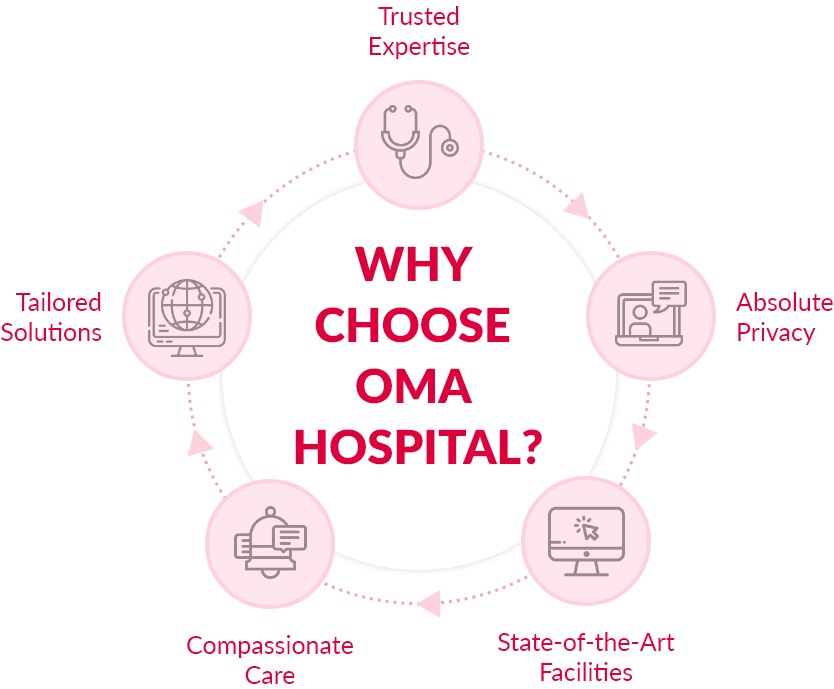Genitourinary Syndrome of Menopause (GSM) is a group of symptoms caused by declining estrogen levels during menopause. It affects the vaginal and urinary systems, leading to dryness, itching, discomfort during intercourse, and urinary symptoms like frequency and urgency. These changes can significantly impact a woman’s quality of life and often worsen over time without treatment.
GSM occurs due to thinning and reduced elasticity of the vaginal and urethral tissues, along with decreased natural lubrication and pH changes. These alterations increase the risk of irritation and infection. Early recognition and treatment are essential to managing the condition and preventing progression.
Thankfully, GSM is treatable with options like non-hormonal moisturizers, vaginal estrogen, and lifestyle changes. Laser treatment is also offered by OMA hospital. It is possible with advanced technologies which have a unique long pulse, fractional delivery of CO2 laser - delivered via DOE (Diffractive Optical Element) that pixelates the beam to 81 microscopic pixels - results in ablative zones with significant thermal zones within the tissue. Consulting a healthcare provider ensures a personalized approach. Addressing GSM improves physical comfort, emotional well-being, and intimacy, helping women navigate menopause with greater ease.

At OMA Hospital, we combine medical expertise with a deep understanding of our patients' needs, offering a supportive, non-judgmental environment where your emotional well-being is as important as your physical recovery. Our certified gynecologists and surgeons bring years of experience, ensuring safe and effective procedures using advanced surgical techniques and minimally invasive methods for your comfort and quick recovery.
With empathy and discretion at the heart of our care, we prioritize your confidentiality and tailor personalized treatment plans to meet your unique cultural, emotional, and physical needs, providing the respect and care you deserve.

Is the treatment for GSM painful?
Most treatments for GSM, including vaginal estrogen and laser therapy, are minimally or non-painful and well-tolerated.
Will my privacy be protected?
Absolutely. We, at OMA Hospital, ensure the highest level of confidentiality, safeguarding your personal and medical information.
Who suffers from GSM?
GSM primarily affects women in menopause due to declining estrogen levels, though some may experience it earlier due to other factors.
How can GSM treatment affect physically?
GSM treatment can restore vaginal moisture, improve tissue elasticity, reduce discomfort, and enhance overall urinary and sexual health.
How long is the recovery period?
Recovery is usually quick, with most women resuming normal activities immediately after non-invasive GSM treatments.
Who is eligible for GSM treatment?
Any woman experiencing symptoms of GSM, particularly during or after menopause, is eligible for treatment, subject to medical evaluation.
What can I expect during the GSM treatment procedure?
The procedure typically involves a quick, comfortable process with treatments tailored to alleviate symptoms and improve vaginal and urinary health.













